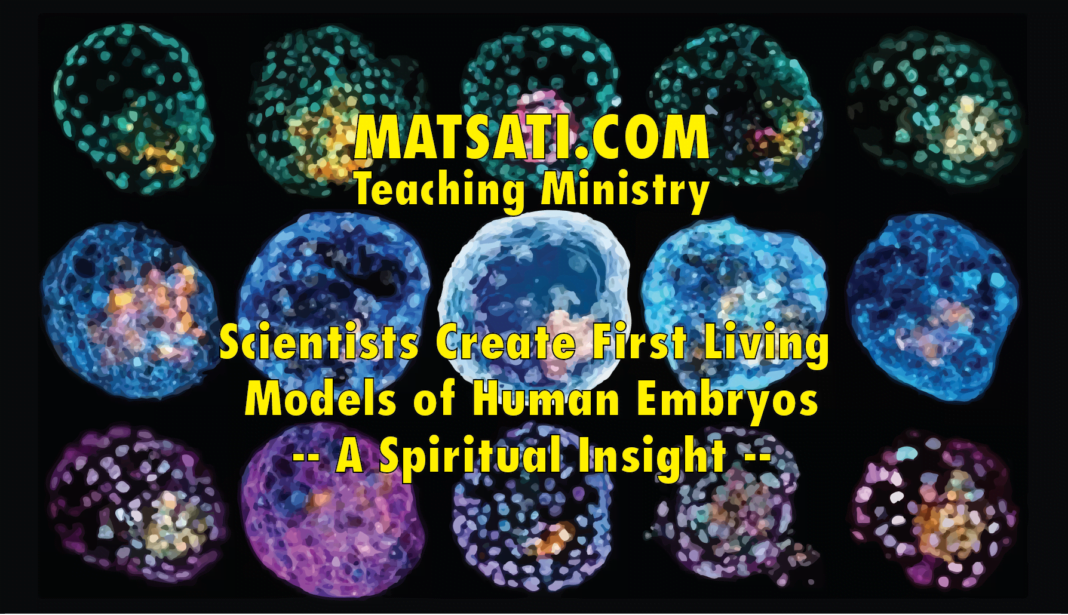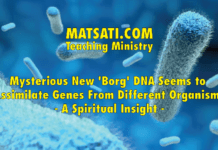Recently, Scientists have reportedly [1] grown blastocysts for the first time in the laboratory that help to further our understanding of early human development. In previous research, pluripotent and trophoblast stem cells had been used, but lacked the complexity to adequately model the spatiotemporal cellular and molecular dynamics that occur during early embryonic development. Human trophoblast stem cells (hTSCs) derived from blastocysts and first-trimester cytotrophoblasts offer an unprecedented opportunity to study the placenta. However, access to human embryos and first-trimester placentas is limited, thus preventing the establishment of hTSCs (Human trophoblast stem cells) from diverse genetic backgrounds associated with placental disorders. The hTSC lines of diverse genetic origins open the possibility to model both placental development and diseases in a dish. In this research, scientists reprogrammed fibroblasts into three dimensional models of the human blastocyst.
References
- Xiaodong Liu, Jia Ping Tan, Jan Schröder, et. al., “Modelling human blastocysts by reprogramming fibroblasts into iBlastoids,” Nature 2021, volume 591, pages 627–632, DOI: 10.1038/s41586-021-03372-y, https://www.nature.com/articles/s41586-021-03372-y
This research is aimed at helping understand problems that cause miscarriages and birth defects, some people have warned of the possibility of human cloning and genetic engineering. The Monash University in Australia in collaboration with the University of Texas created these blastoids, which are not exact replicas of real embryos and so they cannot be implanted into a womb. The purpose of these blastoids was to study embryonic cell development 5 to 10 days after an egg has been fertilized. The idea is to study the early stages of development and why infertility may occur, and what the impact of toxins and viruses have on early embryo development. The researchers grew the blastoids from stem cells derived by reprogramming adult cells or from cells extracted from embryos. The cells were treated chemically and grown in lab dishes containing a culture medium designed to make them develop like real embryos. The researchers placed the cells in a 3D jelly scaffold and the cells interacted and organized into a round structure that resembled the human blastocyst. Following a week of treatment in the lab dishes, the cells became blastoids of a similar size and shape as embryos. Some blastoids showed similar behavior mimicking implantation into the uterus as they attached themselves to the culture dish and grew new cells that would mimic a placenta. These new techniques allow for the chance to study how we develop from a single cell into a multicelled human being. Similar research is being conducted using mice. Mice do not have the ethical issues that human cells do and are unconstrained therefore this research has moved further ahead. Researchers at the Weizmann Institute in Israel also published in the same issue of Nature on this topic of mouse embryos which had grown healthily for 11 days, which is 1/2 their typical gestation period using an artificial uterus developed by the scientists. In 2017 and 2018 research papers reported the generation of mouse “blastoids” in vitro by UK and Netherland scientists as well as advances in the generation of human stem cells that replicate aspects of early embryonic development. As a result, the International Society of Stem Cell Research is publishing new ethical guidelines for research on modeling human embryos in vitro. This research allows for gaining insights into infertility and miscarriage as this early stage human embryos fail to implantation into the placenta which occurs within the first two weeks after conception. These are what scientists call “silent miscarriages” and are believed to be a significant portion of the total number of miscarriages that occur. These models allow for scientists to study the early stage of pregnancy.
The Spiritual Insights that we receive from this type of research is related to the sanctity of life. We note how there are ethical laws preventing human cloning which illustrates the sanctity of life. The scientific research is designed to model the spatiotemporal cellular and molecular dynamics that occur during early embryonic development. The outcome of this research was meant to study the early stages of development and why infertility may occur by reason of toxins or viruses. This study and studies like it will help gain insights into infertility and miscarriage as this early stage human embryos fail to implantation into the placenta which occurs within the first two weeks after conception. This again demonstrates the sanctity of life as trying to understand and prevent the loss of life due to miscarrage. In the Holy Scriptures, we read in various places, a description of the sanctity of life and Tehillim / Psalms 139:1-13 is just one of those places.
ספר תהילים פרק קלט
א לַמְנַצֵּחַ לְדָוִד מִזְמוֹר יְהֹוָה חֲקַרְתַּנִי וַתֵּדָע: ב אַתָּה יָדַעְתָּ שִׁבְתִּי וְקוּמִי בַּנְתָּה לְרֵעִי מֵרָחוֹק: ג אָרְחִי וְרִבְעִי זֵרִיתָ וְכָל-דְּרָכַי הִסְכַּנְתָּה: ד כִּי אֵין מִלָּה בִּלְשׁוֹנִי הֵן יְהֹוָה יָדַעְתָּ כֻלָּהּ: ה אָחוֹר וָקֶדֶם צַרְתָּנִי וַתָּשֶׁת עָלַי כַּפֶּכָה: ו פְּלִאָיה [פְּלִיאָה] דַעַת מִמֶּנִּי נִשְֹגְּבָה לֹא-אוּכַל לָהּ: ז אָנָה אֵלֵךְ מֵרוּחֶךָ וְאָנָה מִפָּנֶיךָ אֶבְרָח: ח אִם-אֶסַּק שָׁמַיִם שָׁם אָתָּה וְאַצִּיעָה שְּׁאוֹל הִנֶּךָּ: ט אֶשָּׂא כַנְפֵי-שָׁחַר אֶשְׁכְּנָה בְּאַחֲרִית יָם: י גַּם-שָׁם יָדְךָ תַנְחֵנִי וְתֹאחֲזֵנִי יְמִינֶךָ: יא וָאֹמַר אַךְ-חשֶׁךְ יְשׁוּפֵנִי וְלַיְלָה אוֹר בַּעֲדֵנִי: יב גַּם-חשֶׁךְ לֹא-יַחְשִׁיךְ מִמֶּךָ וְלַיְלָה כַּיּוֹם יָאִיר כַּחֲשֵׁיכָה כָּאוֹרָה: יג כִּי-אַתָּה קָנִיתָ כִלְיֹתָי תְּסֻכֵּנִי בְּבֶטֶן אִמִּי: יד אוֹדְךָ עַל כִּי נוֹרָאוֹת נִפְלֵיתִי נִפְלָאִים מַעֲשֶֹיךָ וְנַפְשִׁי יֹדַעַת מְאֹד
Tehillim / Psalms 139:1-13
139:1 O Lord, You have searched me and known me. 139:2 You know when I sit down and when I rise up; You understand my thoughts from afar. 139:3 You scrutinize my path and my lying down, And are intimately acquainted with all my ways. 139:4 Even before there is a word on my tongue, Behold, O Lord, You know it all. 139:5 You have enclosed me behind and before, And laid Your hand upon me. 139:6 Such knowledge is too wonderful for me; It is too high, I cannot attain to it. 139:7 Where can I go from Your Spirit? Or where can I flee from Your presence? 139:8 If I ascend to heaven, You are there; If I make my bed in Sheol, behold, You are there. 139:9 If I take the wings of the dawn, If I dwell in the remotest part of the sea, 139:10 Even there Your hand will lead me, And Your right hand will lay hold of me. 139:11 If I say, ‘Surely the darkness will overwhelm me, And the light around me will be night,’ 139:12 Even the darkness is not dark to You, And the night is as bright as the day. Darkness and light are alike to You. 139:13 For You formed my inward parts; You wove me in my mother’s womb. 139:14 I will give thanks to You, for I am fearfully and wonderfully made; Wonderful are Your works, And my soul knows it very well. (NASB)
We note how this Psalm opens saying לַמְנַצֵּחַ לְדָוִד מִזְמוֹר יְהֹוָה חֲקַרְתַּנִי וַתֵּדָע “in regards to the song of David, O Lord, You have searched me and known me.” This Psalm speaks of the intimate nature of our relationship with God, how the Lord searches and knows us. David continues saying, אַתָּה יָדַעְתָּ שִׁבְתִּי וְקוּמִי בַּנְתָּה לְרֵעִי מֵרָחוֹק “You know when I sit down and when I rise up; You understand my thoughts from afar” indicating that the Lord is present always, even if we do not realize. In fact, David says it doesn’t matter where we go in this world, the Lord is there, ז אָנָה אֵלֵךְ מֵרוּחֶךָ וְאָנָה מִפָּנֶיךָ אֶבְרָח: ח אִם-אֶסַּק שָׁמַיִם שָׁם אָתָּה וְאַצִּיעָה שְּׁאוֹל הִנֶּךָּ: ט אֶשָּׂא כַנְפֵי-שָׁחַר אֶשְׁכְּנָה בְּאַחֲרִית יָם: י גַּם-שָׁם יָדְךָ תַנְחֵנִי וְתֹאחֲזֵנִי יְמִינֶךָ: 139:7 Where can I go from Your Spirit? Or where can I flee from Your presence? 139:8 If I ascend to heaven, You are there; If I make my bed in Sheol, behold, You are there. 139:9 If I take the wings of the dawn, If I dwell in the remotest part of the sea, 139:10 Even there Your hand will lead me, And Your right hand will lay hold of me. (NASB) This is a description of God’s omnipotent and all knowing character. David goes on saying in 139:3, אָרְחִי וְרִבְעִי זֵרִיתָ וְכָל-דְּרָכַי הִסְכַּנְתָּה “You scrutinize my path and my lying down, And are intimately acquainted with all my ways.” Notice how the Hebrew text states, אָרְחִי “I wandered” and וְרִבְעִי “I recline or lay down,” the Lord זֵרִיתָ “you measure up” וְכָל-דְּרָכַי “and all my ways” הִסְכַּנְתָּה “you are acquainted.” This is slightly different from the NASB translation, but again illustrates for us how the Lord considers our ways. Remember last week how we discussed what the Torah commands us according to Devarim / Deuteronomy 18:13:
ספר דברים פרק יח
יג תָּמִים תִּהְיֶה עִם יְהוָֹה אֱלֹהֶיךָ:
Devarim / Deuteronomy 18:13
You must be wholehearted before the LORD your God.
Remember how this is in the context of learning the ways of the nations, idolatry, causing one’s children to pass through the fire, and consulting evil spirits, necromancy, witchcraft, etc. (see Devarim / Deuteronomy 18:1-12) The word תָּמִים here is key as meaning “complete, whole, sound, blameless” and so this verse is saying that we are commanded to be wholehearted with God. These things speak to us concerning what God is doing in our lives, He is looking for our being wholehearted before Him, meaning we are to be “all in” in matters of faith. If we recognize that we are not “all in” we can seek His help and He will help us by transforming our hearts to be wholehearted. David goes on saying, כִּי אֵין מִלָּה בִּלְשׁוֹנִי הֵן יְהֹוָה יָדַעְתָּ כֻלָּהּ “Even before there is a word on my tongue, Behold, O Lord, You know it all.” This suggests that God also knows our thoughts, and this ties back into the command for our being תָּמִים wholehearted, of having an innocent heart before the Lord, meaning that our intentions are for His glory and not our own. This is significant because as David says, אָנָה אֵלֵךְ מֵרוּחֶךָ וְאָנָה מִפָּנֶיךָ אֶבְרָח “Where can I go from Your Spirit? Or where can I flee from Your presence?” meaning we cannot hide our sinful ways. The idea of יְהֹוָה חֲקַרְתַּנִי וַתֵּדָע the Lord searching us out and knowing us illustrates this concept of the sanctity of live in the sense that the Lord God Almighty, as powerful as He is, considers us important enough to actually get to know us intimately. We note how the Hebrew text uses the word חֲקַרְתַּנִי which is not the same as drash (דרש) searching something out like we read in Vayikra / Leviticus 10:16, or מחפשים (mekhapsim) meaning “looking or seeking, searching” out something. This word חֲקַרְתַּנִי is on a much more intimate level as searching out a man and finding out his sentiments, meaning his persuasion, or his opinion, this is a much more intimate approach as the Lord is digging deeper than just our actions, He is also looking at our heart. The reason being what is written in Tehillim / Psalms 139:13-14, יג כִּי-אַתָּה קָנִיתָ כִלְיֹתָי תְּסֻכֵּנִי בְּבֶטֶן אִמִּי: יד אוֹדְךָ עַל כִּי נוֹרָאוֹת נִפְלֵיתִי נִפְלָאִים מַעֲשֶֹיךָ וְנַפְשִׁי יֹדַעַת מְאֹד 139:13 For You formed my inward parts; You wove me in my mother’s womb. 139:14 I will give thanks to You, for I am fearfully and wonderfully made; Wonderful are Your works, And my soul knows it very well. (NASB) This carries with it the meaning that God takes special effort to search and know us. He is not simply looking at the surface, he goes down deeper to understand our motivations. This also reveals to us how the Lord God always takes the time to know everything about us so that he can take care of us! The Lord God Almighty does not just know us as we currently exist, David says He knew us even before we were born. David also says the Lord’s thoughts about us are precious saying the Lord had many thoughts about us, so much so, to count them would be like counting the grains of sand on the sea shore. (Tehillim / Psalms 139:17-18)
Because of these things, the central issue of our spiritual life is the willingness to do God’s will, having a willingness to believe, and live our lives wholeheartedly for the Lord. To believe that God exists, that He has particularly called you out of the world, and that we have been redeemed in the blood of Yeshua the Messiah. Because of these things our lives and our identity are bound to mercy and truth. Having faith, and walking in God’s ways, and the presence of the Lord in our hearts, the world wants to pull us back to our old ways and life of sin. This is the struggle we go through as believers, to walk in God’s ways, to turn from sin and from our old ways. We are not without help because the Lord promises to help us. To have a divided heart, to walk with one foot in the world and the other according to the Scriptures (i.e. this is like having a few days walking with the Lord and a few days of living in sin) will lead to failure in our walk with God. James 4:8 states “Draw near to God, and he will draw near to you. Cleanse your hands, you sinners, and purify your hearts, you double-minded.” Notice how the Lord does not place conditions upon us outside of the need for us to be repentant and to sincerely seek the Lord drawing near for help. This draws us back to the Torah command, Devarin / Deuteronomy 18:13, תָּמִים תִּהְיֶה עִם יְהוָֹה אֱלֹהֶיךָ “you are to be wholehearted with the Lord your God.” This command speaks to us about making up our minds and to be unified in thought and deed for the Lord. Notice how when accepting liberal ideologies, secular humanism, LGBTQ as normal, etc these things pull the mind in two directions. Elijah cried out to the people according to 1 Kings 18:21, וַיִּגַּ֨שׁ אֵלִיָּ֜הוּ אֶל־כָּל־הָעָ֗ם וַיֹּ֙אמֶר֙ עַד־מָתַ֞י אַתֶּ֣ם פֹּסְחִים֮ עַל־שְׁתֵּ֣י הַסְּעִפִּים֒ אִם־יְהוָ֤ה הָֽאֱלֹהִים֙ לְכ֣וּ אַחֲרָ֔יו וְאִם־הַבַּ֖עַל לְכ֣וּ אַחֲרָ֑יו וְלֹֽא־עָנ֥וּ הָעָ֛ם אֹת֖וֹ דָּבָֽר׃ And Elijah came near to all the people and said, “How long will you go limping between two different opinions? If the Lord is God, follow him; but if Baal, then follow him.” And the people did not answer him a word. (ESV) these Scriptures are timeless, that speak to us as examples. Today, people’s freedom to sin is their god, as opposed to Baal in those ancient days. From the scientific research we are reminded of the sanctity of life and how the Lord loves us, created us, and calls us to Himself. Note how David prayed to the Lord God saying, Tehillim / Psalm 139:23 “Search me, O God, and know my heart; test me …” This is an example for us to ask the Lord to do the same, so that He can exercise His great power in our lives to transform us. Especially for the Lord to show us our sin and wickedness for the purpose of rooting it out from our lives. Most importantly, for the Lord to move powerfully in our lives to overcome sin and walk in His ways being free from bondage. The path to everlasting life is rooted in our relationship with God. These things along with the scientific research draws out showing us a deeper understanding of God in our lives. No matter what we are going through, whether we are in our darkest times or in our happiest moments, we can know that the Lord God Almighty is with us, and cares for us, and loves us, and wants only the best for us. This is the power of the message of the gospel, having faith in Yeshua, believing what He did for us, laying His life down on our behalf for the forgiveness of sins, and receiving the Holy Spirit of God into our hearts and our lives to help us to overcome the world, and then walking in His ways! We have a powerful and wonderful God who is able to do all of these things, we just have to be “all in” (wholehearted) in our relationship with Him!









